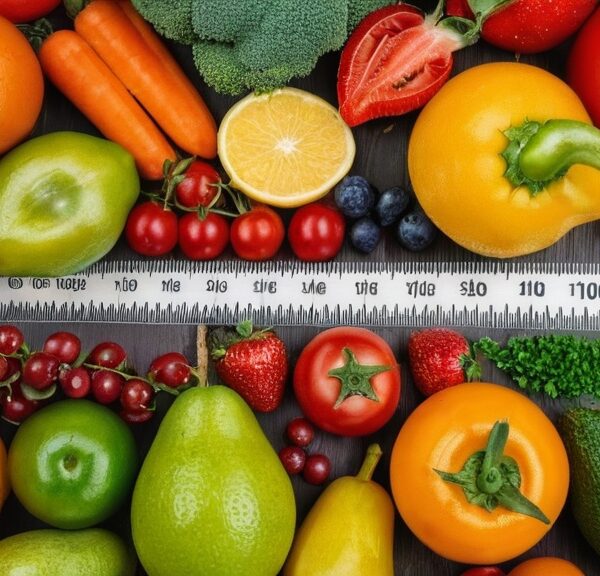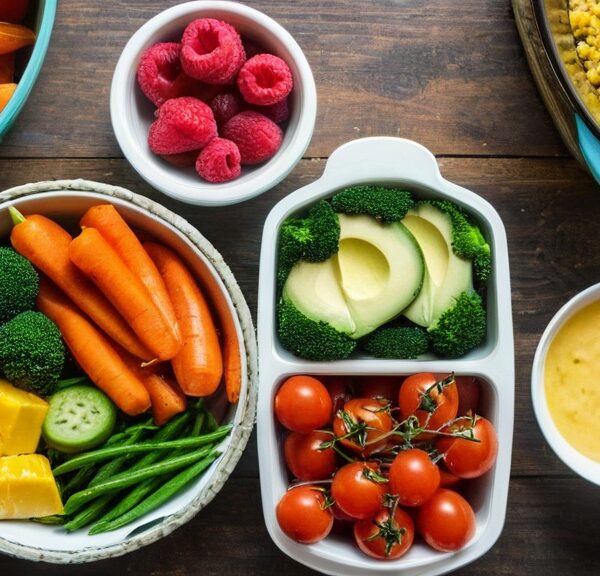Inflammation plays a crucial role in the body’s healing process. It acts as a defense mechanism against injury and infection. However, chronic inflammation can hinder recovery and lead to various health issues.
Bodybuilders, in particular, need to understand this balance to optimize their performance and recovery. When muscles undergo stress from intense workouts, inflammation naturally occurs. This response helps repair damaged tissues.
Yet, if inflammation persists, it can lead to fatigue, pain, and decreased performance. Recognizing the signs of chronic inflammation is essential for athletes aiming for peak performance.
Key Takeaways
- Inflammation can impact recovery and hinder muscle growth, making it important for bodybuilders to manage it effectively.
- Nutrition plays a crucial role in managing inflammation, and certain foods can either promote or reduce inflammation in the body.
- Anti-inflammatory foods such as fatty fish, leafy greens, and berries should be incorporated into a bodybuilder’s diet to help reduce inflammation and support recovery.
- Building a balanced meal plan that includes a variety of nutrient-dense foods is essential for managing inflammation and promoting recovery in bodybuilders.
- Pre-workout and post-workout meals should focus on controlling inflammation by including foods like lean proteins, complex carbohydrates, and healthy fats.
The Role of Nutrition in Managing Inflammation
Nutrition significantly influences inflammation levels in the body. Certain foods can either exacerbate or reduce inflammation. A well-balanced diet rich in anti-inflammatory nutrients can support recovery and overall health.
Incorporating omega-3 fatty acids, antioxidants, and vitamins can help combat inflammation. Foods like fatty fish, berries, and leafy greens provide these essential nutrients. Bodybuilders should prioritize these foods to enhance their recovery process.
Incorporating Anti-Inflammatory Foods into a Bodybuilder’s Diet

Integrating anti-inflammatory foods into a bodybuilder’s diet is vital for optimal recovery. Foods rich in antioxidants help reduce oxidative stress caused by intense training. Incorporating these foods can lead to improved muscle recovery and reduced soreness.
Some excellent options include turmeric, ginger, and green tea. These ingredients not only add flavor but also offer powerful anti-inflammatory properties. Bodybuilders can easily include them in smoothies, meals, or snacks.
Building a Balanced Meal Plan for Recovery and Inflammation Management
Creating a balanced meal plan is essential for managing inflammation effectively. A well-structured plan should include a variety of food groups. This ensures that the body receives all necessary nutrients for recovery.
Focus on whole foods rather than processed options. Whole grains, lean proteins, healthy fats, and plenty of fruits and vegetables should dominate the diet. This approach provides the body with the tools it needs to fight inflammation and recover efficiently.
Pre-Workout and Post-Workout Meal Ideas for Inflammation Control
Pre-workout meals should fuel the body while minimizing inflammation. Opt for complex carbohydrates combined with lean protein. For example, oatmeal topped with berries and a scoop of protein powder makes an excellent choice.
Post-workout meals are equally important for recovery. Incorporate anti-inflammatory foods like salmon with quinoa and steamed broccoli. This combination provides protein, healthy fats, and essential nutrients to aid recovery.
The Importance of Hydration and Anti-Inflammatory Beverages

Hydration plays a critical role in managing inflammation. Water helps transport nutrients and flush out toxins from the body. Staying hydrated can significantly impact recovery times and overall performance.
In addition to water, consider anti-inflammatory beverages. Green tea, tart cherry juice, and herbal teas offer additional benefits. These drinks can help reduce inflammation while keeping the body hydrated.
Meal Prep Tips for Busy Bodybuilders in Recovery
Meal prep can simplify nutrition for busy bodybuilders focused on recovery. Preparing meals in advance saves time and ensures access to healthy options. This practice helps maintain consistency in dietary choices.
Start by planning meals for the week ahead. Choose recipes that incorporate anti-inflammatory ingredients. Batch cooking grains, proteins, and vegetables can streamline the process and make healthy eating more manageable.
Supplements and Superfoods for Enhancing Anti-Inflammatory Effects
Supplements can complement a balanced diet by enhancing anti-inflammatory effects. Omega-3 fatty acids, curcumin, and probiotics are popular choices among athletes. These supplements can support recovery and reduce inflammation when used correctly.
Superfoods like spirulina, acai berries, and chia seeds also offer significant benefits. Incorporating these into smoothies or snacks can boost nutrient intake. Bodybuilders should consider their individual needs when selecting supplements.
Sample Anti-Inflammatory Meal Plan for Bodybuilders in Recovery
A sample meal plan can provide guidance for bodybuilders focusing on anti-inflammatory nutrition. Breakfast could include oatmeal topped with walnuts and blueberries. For lunch, consider a quinoa salad with chickpeas, spinach, and olive oil dressing.
Dinner might feature grilled salmon with sweet potatoes and steamed broccoli. Snacks could include Greek yogurt with honey or a smoothie with spinach and banana. This plan emphasizes whole foods rich in anti-inflammatory properties.
Adjusting the Meal Plan Based on Individual Needs and Preferences
Every bodybuilder has unique dietary needs and preferences. Adjusting the meal plan accordingly is crucial for long-term success. Consider factors like training intensity, personal taste, and any food allergies.
Experimenting with different foods can help identify what works best for individual recovery goals. Flexibility in meal planning allows bodybuilders to stay motivated while adhering to their nutritional needs.
Monitoring Progress and Making Adjustments to the Anti-Inflammatory Meal Plan
Monitoring progress is essential for evaluating the effectiveness of an anti-inflammatory meal plan. Keep track of energy levels, recovery times, and overall performance. This information can guide necessary adjustments to the diet.
Regularly reassessing dietary choices ensures that bodybuilders meet their evolving needs. If certain foods do not yield desired results, consider alternatives that may be more effective. Staying proactive about nutrition will enhance recovery and performance over time.
FAQs
What is an anti-inflammatory meal plan?
An anti-inflammatory meal plan focuses on consuming foods that help reduce inflammation in the body. This typically includes foods high in antioxidants, omega-3 fatty acids, and phytonutrients.
Why is an anti-inflammatory meal plan important for bodybuilders in recovery?
Bodybuilders in recovery can benefit from an anti-inflammatory meal plan as it can help reduce muscle soreness, promote faster recovery, and support overall health and well-being.
What are some examples of anti-inflammatory foods?
Examples of anti-inflammatory foods include fatty fish (such as salmon and mackerel), leafy greens, berries, nuts, seeds, turmeric, ginger, and olive oil.
Are there any foods that bodybuilders in recovery should avoid in an anti-inflammatory meal plan?
Bodybuilders in recovery may want to avoid or limit consumption of processed foods, refined sugars, trans fats, and excessive alcohol, as these can contribute to inflammation in the body.
How can bodybuilders in recovery incorporate anti-inflammatory meal planning into their diet?
Bodybuilders in recovery can incorporate anti-inflammatory meal planning by including a variety of fruits, vegetables, lean proteins, and healthy fats in their meals. Meal prepping and planning ahead can also help ensure they have access to nutritious, anti-inflammatory foods throughout the week.



